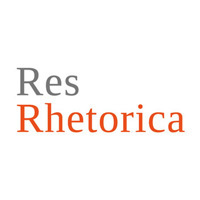Książę Niccola Machiavellego jako przykład zastosowania toposu zakulisowości
Machiavelli’s Prince as an example of the use of the topos of backstage rhetoric
Author(s): Marcin PietrzakSubject(s): Politics, Applied Linguistics
Published by: Polskie Towarzystwo Retoryczne
Keywords: Machiavelli; rhetoric; cynicism; professionalism; rhetorical consubstantiation
Summary/Abstract: To explain the phenomenon of the popularity of Machiavelli's Prince one has to point out the mode of communication that is used by the author. He has presented himself as a professional in the field of politics, and he wants to see his readers as professionals as well. The typically cold and seemingly unadorned style of Machiavelli’s prose underlines the impersonal relation between the author and his object of consideration. In the framework of rhetorical theory, this mode of communication can be described as searching for the ways to gain, as Kenneth Burke would put this, rhetorical consubstantiation. The speaker talks to the audience in a manner that is characteristic of backstage communication, giving them the hope to be joining a community of professionals. They can join this community by following the master of the political art: Machiavelli himself. This mode of communication can be found elsewhere in literature, especially where the element of cynicism appears, as its nature consists in precisely this form of rhetorical backstage speaking. It is present in the parts of Thucydides’ Peloponnesian War and on the pages of Plato’s dialogues, where the founder of the Academy confronts Socrates’ moralism with the immoralist perspectives of the sophists.
Journal: Res Rhetorica
- Issue Year: 6/2019
- Issue No: 1
- Page Range: 87-98
- Page Count: 12
- Language: Polish

